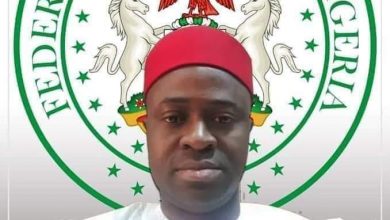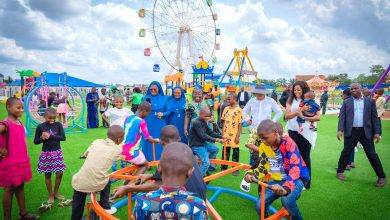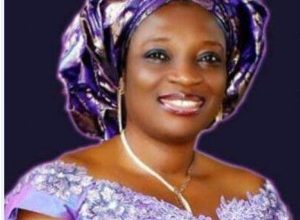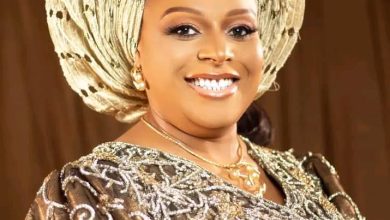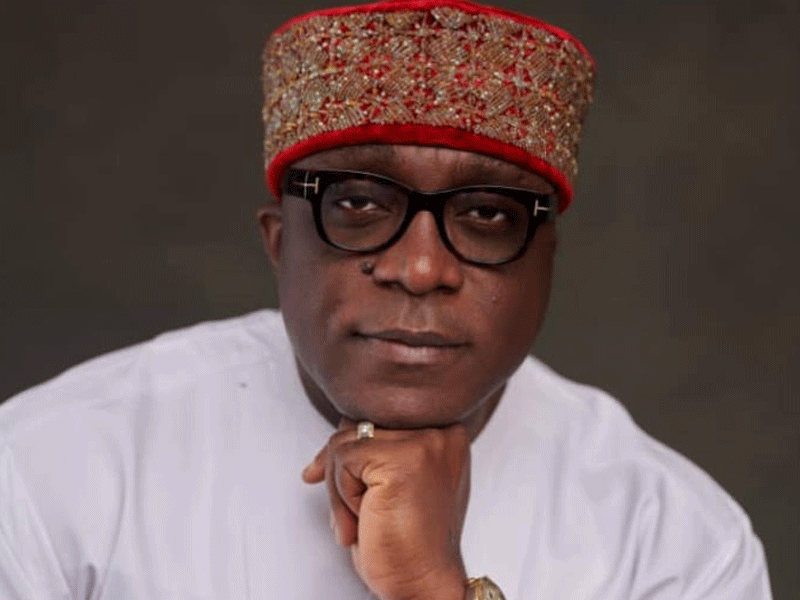
By Nwafor Okafor
-
APPRENTICEPRENEURSHIP AND THE
IGBO ENTREPRENEURIAL INCUBATION SCHEME (IEIS)-Nkwado Ogaranya
REINVIGORATING IGBO ENTREPRENEURIAL BEHAVIOUR
THROUGH ENHANCED APPRENTICESHIP SCHEME: A STUDY
OF ONITSHA MARKETS, ANAMBRA STATE,NIGERIAABOUT THE AUTHORS
Prof. Nkemdili Au. Nnonyelu (au.nnonyelu@unizik.edu.ng | aunnonyelu@yahoo.co.uk) is a Professor of Industrial Relations in the Department of Sociology, Nnamdi Azikiwe University, Awka. He holds a B.Sc Sociology, M.Sc Industrial Sociology, and Ph.D. Industrial Relations in the Department of Sociology/Anthropology, University of Nigeria, Nsukka. He is a widely published, and widely travelled scholar. He has been at various times, Head of Department of Sociology, Dean of the Faculty of Social Sciences, Director, Continuing Education
Programme, Director, UNIZIK Business School, and is currently Director, Emeka Anyaoku Institute for International Studies and Diplomacy. He was a former member of the Governing Council of Nnamdi Azikiwe University for two terms.Outside the University, he has served as Chairman, Anambra State Housing Development Corporation, Special Adviser to the Governor on Ecology and Environment, Transition Chairman, Awka South Local Government Area, and Honourable Commissioner for Education in 2003. He is currently the National President of the Nigerian Anthropological and Sociological Practitioners Association. He is a Fellow of the Nigerian Anthropological and Sociological Practitioners Association; Fellow Chartered Institute of Management Consultants, and a member of the British Sociological Association (BSA), American Sociological Association (ASA), and Association of Black Sociologists in America. Prof. Nkemdili Au. Nnonyelu is a Papal Knight of the Order of St. Sylvester, and 1st Vice Grand President, Awka Grand Commandery of the Knights of St. John International. He is happily married to Nkiru Nnonyelu and the marriage is blessed with children.
Co-Principal Investigators
Prof. Ezimma Nnabuife (ke.nnabuife@unizik.edu.ng | ezimmannabuife@gmail.com) is a Professor of Management. She holds a Ph.D. and MBA degrees in Management and BA in Hotel and Restaurant Management from Washington State University, Pullman, USA. She has published most of her works in the area of industrial democracy, organizational behaviour, and different areas of entrepreneurship in journals, books, and book chapters. Prof Ezimma Nnabuife is a Fellow, Nigerian Institute of Management Sciences, Fellow, Institute of Strategic Management and Member, Nigerian Academy of Management.
She has served as Head, Department of Business Administration, Dean, Faculty of Management Sciences, and External Examiner to many universities. She has supervised many Post Graduate works and has served as Director of different Units within the University. She is a current member of the University Governing Council. She has also served as both member and Chairman of different Accreditation teams. She has won both academic honours and prizes for exceptional performance. Outside UNIZIK, Awka, Prof Ezimma Nnabuife has served in different capacities like pioneer Vice-Chancellor, University of Akpajo, Apkajo, a private University in Rivers
State, and Member, Governing Council of Chukwuemeka Odumegwu Ojukwu University (COOU), Igbariam (2015-2021). Prof. Nnabuife is a Third Degree Knight of St. Murumba and the current Deputy National Representative (DNR) of Inner Wheel Nigeria. She was happily married to Prof. E. L. C. Nnabuife of blessed memory and the marriage is blessed with children.
Dr. Chinedu Uzochukwu Onyeizugbe
(cu.onyeizugbe@unizik.edu.ng | edu_phd@yahoo.com) is a Reader in the Department of Business Administration, Nnamdi Azikiwe University, Awka, Anambra State, Nigeria. He holds a Ph.D. degree in Business Management and his area of interest is in General Management/Production and Operations Management.Dr. Chinedu has authored and co-authored books and published many articles in reputable national and international journals. He is officially recognised as one of the
Top 100 Scholars at Nnamdi Azikiwe University. He is a full
member of, Nigerian Institute of Management, British Academy of Management, Academy of Management Nigeria, and Fellow, Institute of Management Consultants. He is also a Knight of St. Christopher (KSC) is married to Margret Onyeizugbe and the marriage is blessed with five children.
Dr. Rosemary Anazodo (ro.anazodo@unizik.edu.ng | rosyzodos64@yahoo.com) is a Senior Lecturer in the Department of Public Administration, Nnamdi Azikiwe University, Awka. She graduated from the University of Nigeria,
Nsukka, and Nnamdi Azikiwe University, Awka respectively.
Dr. Anazodo is a Fellow at, Nigeria Institute of Public Administration; Fellow Nigerian Institute of Human Resources Management; Member Nigerian Institute of Management, and Co-editor Arabian Journals. She has published most of her works in many reputable international journals in the areas of Human Resources Management, Project Management, and Civil Service. She served as acting Head of the Department of Public Administration in 2015. Dr. Anazodo currently serves as a Senior Special Assistant to Anambra State Governor on Industry, Trade and Commerce, and Secretary-General, Anambra State Markets Amalgamated Traders Association (ASMATA). She is a Lady Knight of St. John International. She is happily married to Sir Franklin Anazodo and the marriage is blessed with children.Dr. Blessing Nonye Onyima (bn.onyima@unizik.edu.ng | nonyelin2003@yahoo.com) is an Anthropologist in the Department of Sociology/Anthropology at Nnamdi Azikiwe University, Awka since 2012. She holds a Ph.D., MA in Medical Anthropology, and BA in Cultural Anthropology all from the University of Ibadan, Ibadan, Nigeria. Her published journal articles and book chapters are focused on ethnographies with themes on ‘culture, health, gender, environment and conflict studies.’ She is a Fellow of the African Humanities Program
(AHP/ACLS); laureate of American Political Science Association (APSA) Workshop Grant 2013; Association of Commonwealth Universities (ACU) Early Career grant 2014, Tertiary Education Trust Fund (TETFUND) grant 2014; African Humanities Program research residency in Rhodes University South Africa, member of the American Anthropological Association (AAA), and currently a coprincipal investigator in the International Science Council sponsored grant for the Leading Integrated Research Agenda for Africa (LIRA, 2030).She is happily married to Mr. Chukwuma Okoli.EXECUTIVE SUMMARY
INTRODUCTION AND BACKGROUND
The entrepreneurial dexterity and ingenuity embedded in the cultural ethos of the Igbo which has produced many successful Igbo entrepreneurs started receiving research attention most recently. The Igbo who have been described as naturally industrious and enterprising have survived through difficult terrains of very challenging economic situations. An instance being the leveling treatment meted on the Igbo after the NigerianBiafran Civil war of 1967-1970 when twenty pounds was given to every Igbo irrespective of the amount held in a bank account ab initio. The treatment which ordinarily, would have resulted to melancholy and resignation, after all the Igbo was justcoming out of a war that decimated over three million children, women and men as soldiers, rather, ignited the spirit for which Igbo have always been known – the spirit of hard work, adventure, resilience among others. To the Igbo, “mberede ka eji ama dike”,
“ntiadighiezuike ma iheonataagwughi”.Entrepreneurship,which invokes words and phrases like creativity, change, innovation, investment of resources, risk taking, wealth creation has been the watch word for the Igbo and truly explains the nature and character of Ndi Igbo. They are found in all parts of Nigeria and the world at large, doing what they know best; harnessing everything entrepreneurially, making profit and creating wealth for themselves and their immediate environment, host community as well as growing the economy.
Behind the success so far recorded in the Igbo entrepreneurial venture is Igba Boyi which has been described as the largest business incubator model in the world. The Igba Boyi scheme is as old as the Igbo race itself continually nurturing the spirit of hard work and service of “onye fee eze, eze eruo ya”. Igba Boyi is believed by the Igbo as the way to prepare the ones to take over the successful Igbo entrepreneurism. Igba Boyi, an apprenticeship method aligned to the Igbo, involves some type of informal vocational education of mentoring a younger one, the mentee, under the tutelage of the Oga, the master and the mentor, over a specified period of time, to learn the skills and secrets of a trade or a craft, with the hope of graduating one day to start his own business venture.
Ndi Oga who first went back to their business domains and witnessed the wonton destruction andruins stayed back in the same spirit of resilience to rebuild from the devastation. They soon came back to the villages, sought for and took Umu Boyi, who were mostly kin-related in the spirit of “aku lue uno”, to help them in their already thriving businesses. The Umu Boyi, were soon freed after obediently, diligently and honestly serving Ndi Oga, who have ended up replicating themselves, pro-genetically, in them, to start their own business. This practice became regenerative and has continued to form the bases for the success behind the Igbo entrepreneurial venture.
Most recently however, it was noticed that due to greed, quest for materialism, dishonesty, lack of patience to learn, the effect of social media, get rich quick syndrome (ego mbute; igbuozu; ibuike) all pointing to the loss of value, and what may be regarded as stigma associated with Igba Boyi in servitude among other reasons, the need has arisen to interrogate and investigate the existing Igba Boyi model with a view to recommending a better model that will re-ignite the spirit of service, hard work and resilience devoid of the feeling of exploitation which is part of the reason many young persons now shun the Igba Boyi scheme. This was done under the topic; RE-INVIGORATING IGBO ENTREPRENEURIAL BEHAVIOUR THROUGH ENHANCED APPRENTICESHIP SCHEME: A STUDY OF ONITSHA MARKETS, ANAMBRA STATE, NIGERIA.
Altogether, twelve objectives, research question and hypotheses guided the study.CONCEPTS AND METHODS
The concepts of Igbo entrepreneurship, and the Igba Boyi scheme of apprenticeship dominate this research space. Entrepreneurship which has been generally seen as a process that involves creativity and innovation through risk taking with the aim of making profit that leads to wealth creation and its antecedents, is not different from Igbo entrepreneurship. However, the Igbo have been seen for decades as naturally entrepreneurial through their uncommon display of hard work, resilience, adventure, among other attributes, and this predates European colonialism in Africa. Such entrepreneurial prowess of Igbo entrepreneurship has to a large extent, and over years, been contributing to the general wellbeing of the Igbo through wealth creation and employment in the Nigeria and Africa. It has however, been established that Igba Boyi, a unique apprenticeship prototype peculiar to the Igbo has been the secret of the successes recorded over time in Igbo entrepreneurship and this has been established by numerous scientific researches. The Igba Boyi apprenticeship scheme has been in the decline for which reason and others this research was undertaken.A mix method of Triangulation involving both qualitative and quantitative modeswas adopted in the study. Systematic purposive sampling and snowball techniques were used to select study sites and participants with In-depth Interviews (IDI), Key Informant Interviews (KII) and Focus Group Discussions (FGD) employed as the major qualitative tools.Altogether 35 Ndi Oga, Ndi Madam and Ndi Oga aged between 30 and 72 were engaged in the In-depth Interview. Key Informants/Stakeholders Interviews (KII) were conducted with 18 identified key personalities that have held various top positions in the Onitsha Markets, with their consent and preferred venues. They include experienced retired traders, owners of industries (both defunct and functional), and business owner Ndi Oga (masters), and market union leaders. Focused Group Interview (FGI) was conducted with 68 males and 12 females selected form all the markets at their various locations.
For the quantitative method, the study adopted a survey research design and judgmental sampling was used to select five (5) markets in the Onitsha metropolis in the order of time of the creation of the markets from four Local Government Areas. The market covered were, Main Market, Ochanja Market, Bridge Head Market, Spare Parts Market, Nkpor and Building Materials Markets, Ogidi/Ogbunike. A research team comprising of the Principal Investigator (PI) and the Co-Principal Investigators (Co-PIs), research assistants, and interviewers for data collection all visited all the markets.
The sample size determined for the study applying the Fisher (1998) formular, was 2,401 split into 1,201 for Ndi Oga and Ndi Madam and 1,000 for Umu Boyi, purposively.two sets of questionnaire were designed, one for Ndi Oga/Ndi Madam and the other for Umu Boyi respectively. Open Data Kit (ODK) soft copies of questionnaire were distributed through 50 Research Assistants pre-trained on the use of ODK application/software who constantly searched for the GIS coordinates before submitting collected data online. Two sets of questionnaire were designed and used for “Ndi Oga” (Masters) “Umu Boyi” (Apprentices). Systematic sampling and Cluster sampling were used in the distribution of the copies of questionnaire. The field research of data collection lasted for three months.
For the analysis of data, quantitative methods of descriptive and inferential statistics were adopted. Specifically, Chi Square, Pearson Product Moment Correlation, and Analysis of Variance (ANOVA) were employed in testing the twelve hypotheses formulated for the study. Thematic method of analysis was employed for the qualitative data.
RESULTS
Out the twelve null hypotheses formulated for the study, only three were rejected and nine accepted. The study hypotheses results reveal that
• Socio-cultural characteristics generally relate to entrepreneurial success;
• Ndi Oga who served as Umu Boyi are more likely to succeed than Ndi Oga who did not go through the apprenticeship scheme;
• The type of business oga is dealing in and the length of stay of the Nwa Boyi are positively related;
• Ndi oga with higher levels of education are more likely to achieve business success than those with lower levels of education;
• Older apprentices are not more likely to be in a non-kin-related apprenticeship than younger apprentices;
• Younger Ndi Oga are not more likely to hire female apprentices than older Ndi Oga.
• Availability of adult education contributes to entrepreneurship and apprenticeship skills development among traders in Onitsha Market;
• There is relationship between Igba boyi, Employment and Wealth Creation
• There is a relationship between the acquisition of basic skills and values by umu boyi and entrepreneurial success;
• The emergence of salesgirls will not likely displace the igba boyi scheme among ndi Igbo in Onitsha markets;
• There is a relationship between the decline in igba boyi among Igbo youths and loss of family values and
• The government does not interfere in the relationship between ndi oga and umu boyi.CONCLUSION AND RECOMMENDATIONS
There is definitely obvious decline in igba boyi scheme of ndi Igbo majorly due to the drastic fall in Igbo cultural values that has ab initio, formed the bedrock for child rearing in Igbo families and this and other issues associated with the scheme like increased quest for materialism, get-rich-quick syndrome, lack of patience to learn requisite skills, influence of social media, partly the derogatory way Igba Boyi is regarded among others, have caused the observed shift in paradigm. There is therefore need to reinvigorate the Igbo entrepreneurship through these measures:
• the Igba Boyi scheme should be reconfigured and known as “Nkwado Ogaranya” by institutionalizing it through teaching in institutions of higher learning and enculturation in communities, families, churches, seminars among other methods for the younger generation to realize that it is their future is being prepared for sustainable empowerment and development.
• By training the younger generation on the concept of “Apprentice-preneurship” which is a form of mutual business relationship where the Oga, the mentor and trainer gain from the apprenticeship, “Nwa na akwado iba ogaranya” through the various assistance rendered to the Oga and his family and, the apprentice in turn gains from the Oga by learning the necessary skills and secrets of a trade or craft. By so doing Igba Boyi will no more be regarded as servitude or slavery but the period of service needed for the preparation of Nwa Boyi for creation of wealth and greatness.
• The Igbo Entrepreneurial Incubation Scheme (IEIS) which is explained by the two former concepts; Nkwado Ogaranya and Apprenticepreneurship, should be seen as a special incubation period of preparation when the necessary sacrifice and discipline must be made to prepare the younger apprentice for future greatness and this is amply buttressed by the “no pain no gain” cliché.
• Families need to revert to the ancient ways of raising children and those were the times when honesty, diligence, discipline, hard work among others, were seriously considered as basics.The above two areas are where the family institution, communities and higher institutions are required to play serious roles in the required paradigm shift arising from the study.
POLICY ISSUES
The government that is responsible for policy formulation and implementation is expected to get involved in moderating the relationship between the Ndi Oga and Umu Boyi in a tripartite form that will be made up of the family, the community and the government. Policies should be formulated in the following areas:• Government’s involvement is recommended in formulating the guidelines for regulating and implementing a more formal agreement whose terms can be enforced.
• The government also needs to assist in the provision of the seed capital for start-ups in the form of grants and soft loans as the case may be.
• It is also the prerogative of the government to provide an enabling and peaceful environment devoid of insecurity as well as provide necessary infrastructural facilities for businesses to thrive.
• Provision of Adult Education facilities especially near the markets will help both Umu Boyi and Ndi Oga to further their knowledge in relevant issues concerning their trade or crafts.

